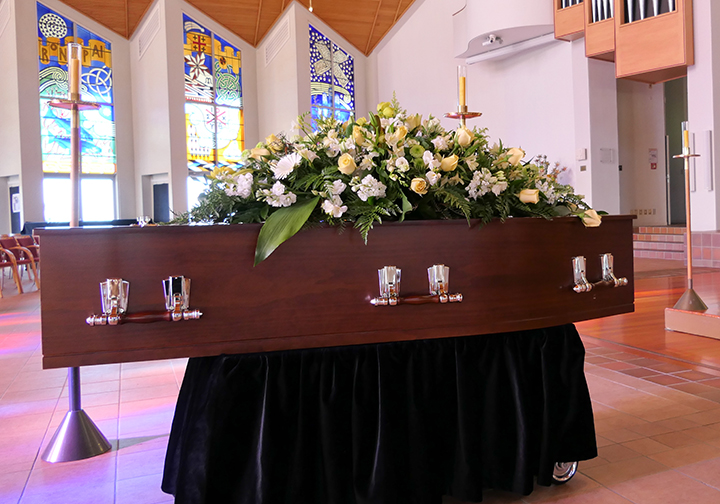
by Joe Bollig
joe.bollig@theleaven.org
KANSAS CITY, Kan. — It used to be that it wasn’t even a question of what to do with a deceased Christian’s body: burial, of course.
The culture has changed.
Alternatives to in-ground burial of the body or placement of the cremated remains in a mausoleum are becoming more popular. Some people are turning to new methods and technologies for the disposition of human remains, supposedly because they are ecologically friendly alternatives.
Two new alternatives to burial or cremation are alkaline hydrolysis (also sometimes called aquamation or water cremation) and human composting.
Neither, however, are permissible alternatives for Catholics.
On March 23, the Committee on Doctrine of the U.S. Conference of Catholic Bishops issued a statement on these methods, warning that they fail to give the “due respect that must be given to the bodily remains of the deceased in a way that gives visible witness to our faith and hope in the resurrection of the body.”
Burial is considered by the Catholic Church to be the most appropriate way of manifesting reverence and respect for the body of the deceased. That’s because the respect given to the bodily remains of the deceased Christian gives visible witness to our faith and hope in the resurrection, according to the statement, “On the Proper Disposition of Bodily Remains.”
Alkaline hydrolysis is legal in 21 states, including Kansas, according to the website at: aquamation info.com/kansas/. It was legalized in Kansas in 2011, but no funeral homes in Kansas offer this, according to US Funerals Online. One funeral home in the Greater Kansas City metropolitan area (in Missouri) offers this alternative, according to Joe Walker, writing for the Funeral Consumers Alliance.
Put most simply, in alkaline hydrolysis the body is placed in a metal tank and — through heat and chemicals — is liquified. The bones are later collected, crushed and put in an urn for burial. The rest goes down the drain.
In human composting, the body is placed in a metal bin and packed with plant material. Heat, oxygen, microbes and bacteria are introduced and the body decomposes into a mass of compost. There is nothing left to be placed in a casket or urn to be laid to rest in a sacred place where the Christian faithful can visit for prayer and remembrance.
According to the U.S. bishops, neither method shows adequate respect for the human body or expresses hope in the resurrection.
No one has, of yet, approached her about either of these methods, said Sharon Vallejo, president of Catholic Cemeteries of Northeast Kansas, but it’s probably coming.
“A [colleague in another state] said families are beginning to ask their pastors about these methods,” she said.
Would Catholic Cemeteries accommodate families that want to choose one of these two alternatives?
“We would not,” said Vallejo. “We’d tell them, respectfully and gently, that it is disrespectful to the human body and contrary to the teachings of the Catholic Church. The body should be buried in a sacred place, not just turned into fertilizer.”






